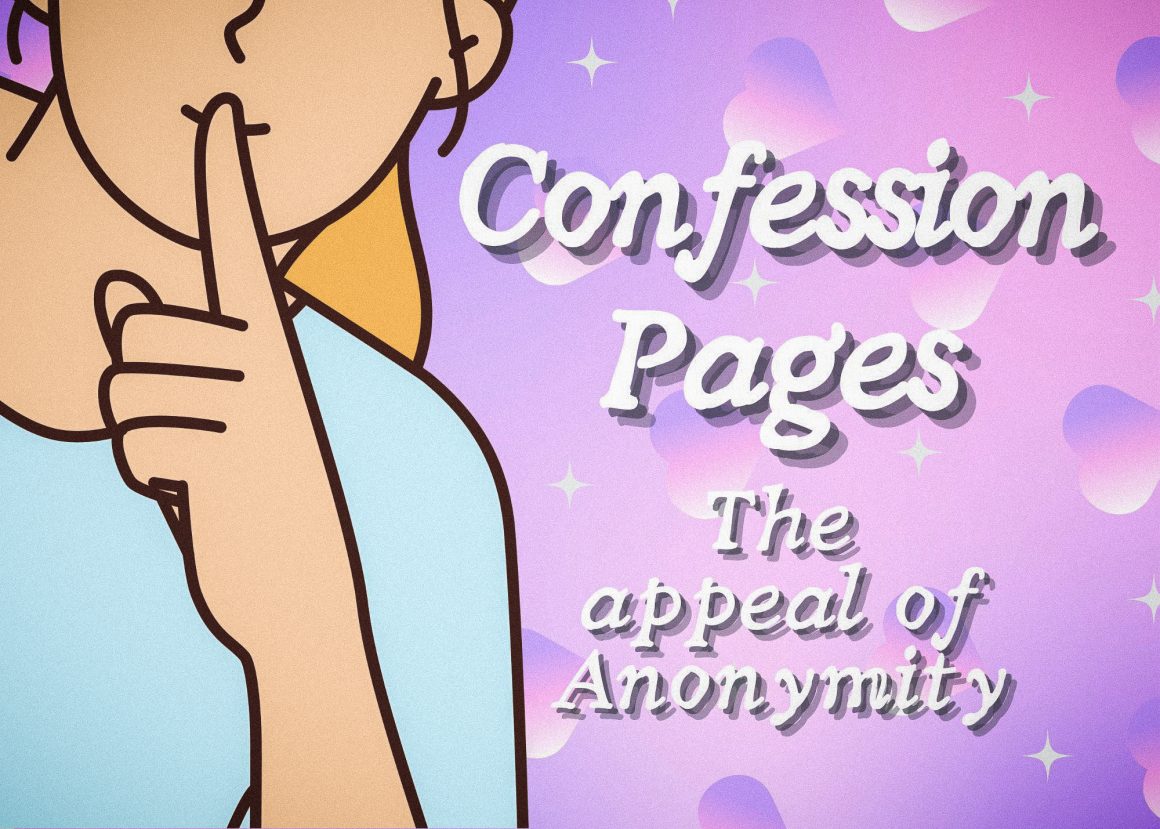
Confession pages: The appeal of anonymity
By Radhya Comar, March 13 2024—
Getting older means paying attention to details that were previously ignored. Things like taxes, vitamins or even expiry dates. Keen awareness of the exact day that the milk goes bad becomes a profound indicator of one’s maturity. Nothing is more disappointing than realizing you never got to consume the product you purchased with your hard-earned money before it spoils. What cuts deeper than that, however, is the fact that growing up, these dates passed by with little to no extra attention to them. Someone, typically a sibling, was always there to eat your leftovers, no matter how much you were looking forward to them. Staring into the communal refrigerator where roommates segregate their meal prep, it becomes evident that people have expiry dates too.
The friends you saw every day last semester were all of a sudden nowhere to be found on campus. Even though you shared notes and laughed after lectures, new schedules may lead you to ask if they were just course friends. Were they just placeholders for genuine connections, set up by regular interaction and close proximity? Were there ever any revelations that extended beyond our academic lives or weekend plans?
Our generation has been able to find an online substitute for intimate conversations with friends through anonymous confession pages on social media. Each page tends to cater to a specific institution, with accounts centring around both universities and high schools. There are, of course, multiple pages dedicated to the University of Calgary. In them, users submit messages via programs like Tellonmyn that keep their identity private. These are then published by the account head who also remains unknown. The two-way anonymity of the system allows participants to share whatever may be on their minds. Sometimes this includes innocent messages about helpful strangers like those that helped them gather their books after a fall or gave them encouragement at the gym. Confession pages are also filled with harmless complaints about people’s daily lives. Users may choose to vent about a roommate’s habits or their boss on these forums. As such, these accounts can serve multiple purposes.
While the majority of messages on such forums are harmless, others take on a different tone. They can be extremely personal and sometimes even lurid. It is these confessions that make such pages so popular. They provide a voyeuristic glimpse into the shocking details of personal relationships, making them sickly entertaining to scroll through. Unsurprisingly, there is no short supply of sensational stories on an account catering to university students. Confession pages typically post several messages in one single post, providing endless fodder for gossip. Anyone can post anything without worrying about someone knowing who they are. Although, that’s precisely the problem — anyone can post anything.
Confession pages can also take on a dangerous role by inadvertently posting sensitive information about a person without their knowledge. In one instance in Pakistan, a young student named Tooba told Digital Rights Monitor that she found her commute route and address was leaked to her university’s unaffiliated confessions page. Even though her private information had been posted, she could not take any action against the perpetrator as he submitted the confession anonymously.
“I felt vulnerable, I felt exposed,” said Tooba.
Although account administrators can set guidelines as to the types of messages that they will accept and post, even harmless compliments on someone’s appearance can be embarrassing for the subject of the confession.
Clearly, these pages can serve multiple functions. They can act as a platform for wholesome comments or everyday frustrations. Alternatively, they can illustrate the lack of digital consent on social media apps. Despite all of this, it is still unclear why these confession pages came to be and what sustains their usage. A part of it is the sense of emotional relief supplied by sharing personal revelations without the fear of judgment. Confessing your thoughts without the fear of any repercussions is undeniably appealing and cathartic. Yet, it begs the question: does the allure of anonymity distract us from forming genuine connections with the people around us? Nobody wants to upset a lighthearted conversation with vulnerability, but is the appeal of obscurity deterring us from trying to form these connections at all? Of course, these connections take time and effort to cultivate. With that being said, it’s easier to set expiry dates on friendships before having to be vulnerable with emotional expression.
This article is a part of our Opinions section and does not necessarily reflect the views of the Gauntlet editorial board.
